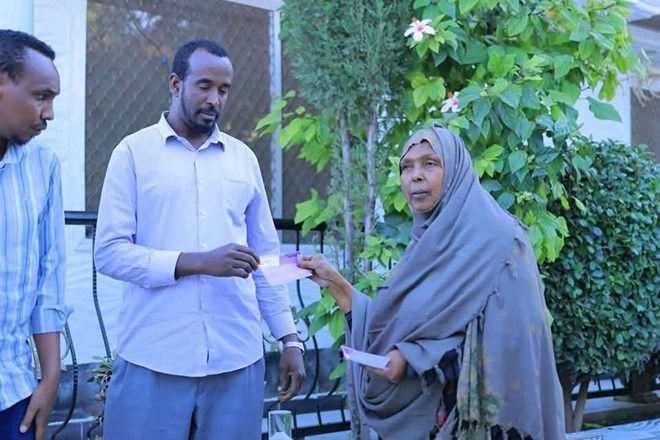
Tuesday December 10, 2024

A Somali woman receives compensation from Afar regional officials as part of a historic restitution agreement, marking the first acknowledgment of responsibility for past killings during intercommunal clashes."
The compensation—totalling 5 million birr— (approximately $40,160.64 USD) was awarded to the families of two Somali men killed along the Awash route during clashes between the Somali and Afar communities. The killings, rooted in long-standing territorial disputes, occurred at a time when violence between the two groups was at its peak.
advertisements
"This is more than financial restitution; it's an acknowledgment of the wrongs committed and a step toward healing," said Abdiwasaq Bade, a Somali Regional State official who spearheaded negotiations with Afar President Awal Arba.One family, who lost a father of ten, received 2.5 million birr, while the family of the second victim, a father of two, was awarded 1.5 million birr. Additional payments were made to an injured survivor (500,000 birrs) and two individuals who suffered psychological trauma (250,000 birrs each).
This compensation is a historic first for the Afar administration, which has long been criticized for failing to address grievances stemming from violence in the contested borderlands. "It's a step in the right direction, but it's just the beginning," said a Somali elder from the region.
The move coincides with broader reconciliation efforts between the Somali and Afar regions. Earlier this month, the two sides signed a formal peace agreement to end years of sporadic violence. The deal included a large-scale prisoner exchange, with dozens of detainees returning home after being captured during previous clashes.
The decades-old dispute between the Somali and Afar communities has often escalated into violent confrontations fueled by competition over scarce resources and contested territory. The Awash route, a vital corridor for both trade and transit, has been a frequent flashpoint.
For families who have borne the brunt of the violence, this is more than a symbolic gesture—it is a tangible step toward justice in a region where such gestures have been painfully rare.